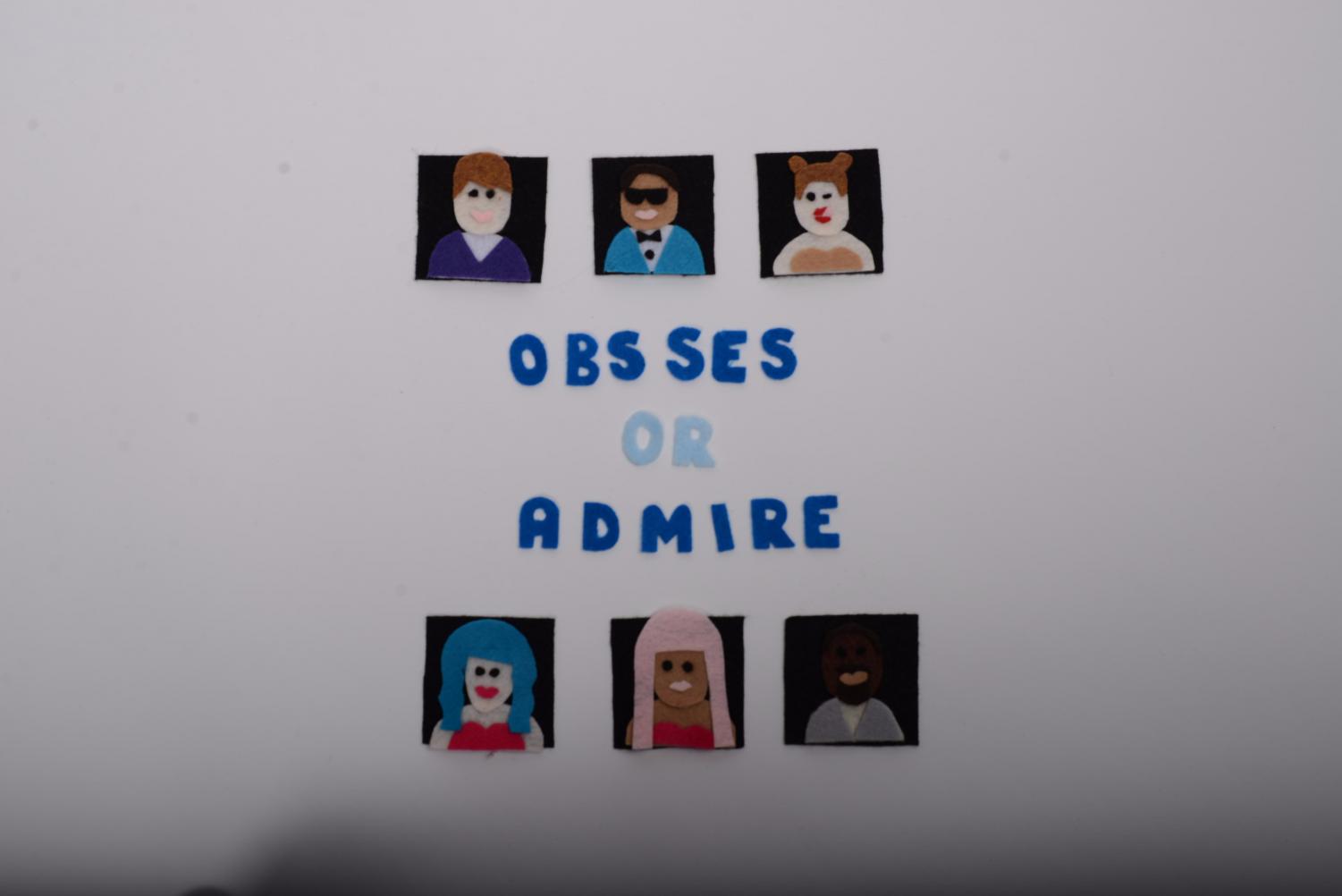Photography by Daniel Lambert
Written by Cassie Acosta
She made her way from a horse-riding country gal from the hub of Tennessee to a teen pop sensation practically overnight. Although she tried desperately to separate her life on stage from her life as a daughter, sister and friend, the weight of the world rested heavily on her shoulders. As her talent continued to grow, so did her place in the public eye. She went from the girl next door to the object of every little girl’s affection, as her fun and catchy songs captured the hearts of many across the world.
Suddenly, what used to be her private life became news for the public, her every move questioned by people who knew nothing about her. The stress of this new life caused her to change, and after some time, these changes resulted in a new her. She was different than the person all the girls had looked up to; her physical appearance had become nearly the exact opposite of what it was before.
She no longer had “the best of both worlds.” The support she had received during her time as Hannah Montana started to fade and these once famous lyrics no longer held much meaning. And now what are we left with? The young girls who spent their days sculpting their hair and changing their clothes to look like Miley Cyrus are now left with false ideas of what it means to be an honest and proper woman.
How often have you turned on the TV and seen stories like Miley Cyrus’s unfold with other celebrities? Whether it’s dressing scandalously, getting in trouble with the law, or using inappropriate and harsh words, everywhere we turn we can see some example of bad leadership. What are we teaching each other? What are we instilling in the minds of children and young adults by the way we act and the people we publicize?
Having role models is not inherently wrong, it just depends on how we choose them. It is all about finding the most positive people to look up to, and finding a balance between admiring someone and obsessing over them.
Choosing Role Models
Believe it or not, there are good and positive people that we can look up to. So how do we choose? First, it is important to understand that no one is perfect. We are all flawed, broken and sinful in nature, so there is no one that will always be a good role model. Oftentimes we look to people who identify themselves as Christian because we assume that they are positive examples of how we should behave. While this can sometimes be true, it is usually situational. So how does this help us when choosing who to look up to?
Outside of Christ, we will never find the perfect role model. All we can do is search for people that strive to grow and be an example of Christ’s love and grace. Look for those who are strong in their faith. We can identify them by seeing if they use their God-given talents and gifts in a way that is pleasing to Him.
For instance, look up to someone like Tyler Perry who, despite the fact that he has faced many trials, uses his gift of filmmaking in a way that suggests the power of Christ. Or look up to someone like your mother or father, who may be serving Christ in their careers or in the way they raise their children. Our role models do not have to be celebrities or anyone in the media; they can be people we interact with every single day.
Finding a Balance
It is easy to look at someone, especially a person in the media, and immediately note all the things you like about them. Doing this is not inherently wrong; it is okay to admire someone’s beauty or to aspire to be like someone in certain ways. The issue arises when you move past this point and want to actually be that person. Rather than taking specific traits or characteristics about someone and using them to encourage and inspire you, your desire becomes to be like this person in every way.
There are many people who move beyond admiration and begin to flirt dangerously with the lines of obsession. Emily, a 14-year-old high school freshman, has dealt with this issue specifically. Emily considers herself to be an ultimate Demi Lovato fan. She says that she initially admired Lovato for the strength and independence she displayed during her public struggle with her body image. It was only recently that this admiration turned into an obsession.
“Demi Lovato is my wallpaper on all of my devices,” Emily says. “I want the voice she has, the fame she has, and would ultimately love to be just like her.”
Emily says that lately she has realized that she may be taking things too far. She recognizes that she has isolated herself from others and has set unrealistic expectations for herself, like becoming famous and maintaining a certain body weight.
So how could this situation have been handled in a healthy way? Emily could have simply admired Lovato’s vocal talent and her willingness to share her God-given gift, instead of wanting to be “just like” Lovato. The strength and independence that Emily looked up to could have inspired and encouraged her to pursue her dreams. What if, instead of isolating herself and neglecting her real-life relationships, she instead fellowshipped with those around her, shared her story and acted as a role model to other people? There is a way to look up to someone without obsessing over them. It is simply a matter of being accountable to yourself.
The Damage of Obsession
The inability to balance admiration and obsession can be damaging. Once we set these unrealistic expectations for ourselves, we begin to drift further and further away from seeing our individual beauty, created by the hands of God in His image. We start to lose the ability of drawing the line between where a role model ends and where we begin, and begin measuring our success based on the success of others, rather than our individual growth. This obsession can cause self-esteem and body image issues, making us feel isolated and leading us to focus on materialistic things.
For Ann, a 45-year-old mother of three, her own obsession has grown to affect not only herself, but her family as well. Her obsession with Joyce Meyer, a Christian author and speaker, has caused her to neglect her family.
“I have gotten so involved with being just as Christ-like [as] Joyce that it has caused me to neglect the needs of my family,” she says. “I have forgotten what it means to be a mother and how much respect can be found in that alone.”
For Ann, obsession did not result in materialism, body image issues or self-esteem problems. Her obsession with being someone else isolated her from her family. Rather than spending time at home with them, she became wrapped up in maintaining a good Christian image through becoming overly-involved with different ministries.
Her participation in ministries was not the issue, but rather the motivation behind her involvement, and the fact that it became a higher priority to her than her own family. She became more concerned with what people thought of her that she lost sight of what truly matters — serving her family. Clearly, obsession manifests itself in different ways for different people, but the result is almost always damaging. Having Role Models is a Good Thing
The right kind of role model
The issue is not having role models, but choosing people worthy of the title. A positive role model can play an integral part in who you become. If you ask around, almost everyone will tell you that they look up to someone, or have in the past. The presence of either positive or negative role models influence the way people act, as evidenced in the differences in behavior among those individuals. The exposure to good role models encourages people to maximize their full potential and sets an example of the mindsets, behaviors and attitudes that are needed to be successful.
Having role models is a vital part of our existence. They teach us, mold us and guide us through life. But it is important to remember that no one compares to Christ and no one will be the perfect example all the time. Christ is the only one truly worthy of the title “role model,” and we should always fixate our eyes on Him as the ultimate standard.
“And Jesus said to him, ‘Why do you call Me good? No one is good except God alone.’” Mark 10:18.





